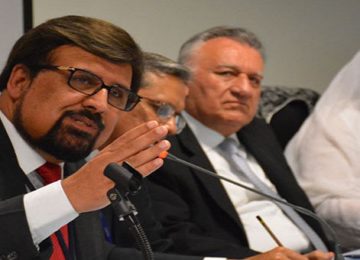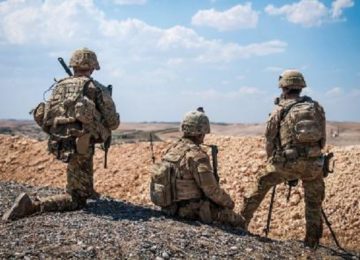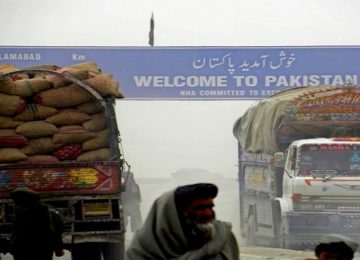January 15, 2018
Goodwill for Pakistan in Afghanistan, particularly in the capital Kabul, is practically non-existent. Nobody wants to associate himself with the name ‘Pakistan’. While the anti-Pakistan sentiment is driven and fueled by a certain lobby as part of a geo-political tit-for-tat, short-sighted and tactical Pakistani approaches too are to blame for the toxic narratives. In its responses such as abrupt border closures or absence of a long-term policy on Afghan refugees, a nuclear-armed country with the seventh largest army, which enjoys a special ally status with the new global economic power China, appears to have stooped itself to the levels of a war-battered country.
In the latest example of ‘shooting yourself in the foot’, propensity became evident when Pakistan extended the stay of Afghan refugees only by less than 30 days.
Not only was the announcement, made after a federal cabinet meeting on January 3, mind-boggling but also exposed the absence of a well thought-through strategy. Who made or influenced this decision? The prime minister must come clean on this.
Following a meeting with the Afghan refugee and repatriation minister and UNHCR representatives a few days ago in Turkey, Pakistan had reportedly agreed to extend the stay of about 1.4 million Afghans in the country until December 31, 2018. But the January 3 decision on the extension stunned almost everybody.
“After detailed discussion, the [federal] cabinet agreed to grant 30 days extension for PoR and also decided that the issue of early repatriation of Afghan refugees shall be raised with UNHCR and with the international community,” the announcement had said.
It took even the Afghan refugees and repatriation minister Sayed Hussain Alami Balkhi, who had been all praise for Pakistan’s generosity on the issue after last year’s agreement on extension, too by surprise. Media reports suggest that the Ministry of States and Frontier Regions (SAFRON) has sent a separate summary to the prime minister for a longer extension.
At the same time, as many as 100,000 new proof of registration cards (PoRs) – a document that allows refugees to stay here legally – have also been blocked because of security concerns. The PoR cards expired on Dec 31, 2017, and under the cabinet’s latest decision registered Afghan refugees can legally stay in Pakistan until Jan 31.
This announcement sparked fears and triggered a new wave of concern not only among the Afghans living here but also provided more ammunition to people across the border to fire at Pakistan.
It hit most Afghans here like a bomb-shell and left them wondering what to await of the intelligence and police officials who are always on the prowl to exploit such conditions for personal monetary benefits.
Surveys by the UNHCR suggest that at least 60 percent of the Afghan refugees were either born here or were minors when their parents migrated to Pakistan. Afghanistan, thus, is alien to most of these young people who are already part of the local economy in different ways.
But, it seems as the Pakistani and Afghan security establishments lock horns over issues of sanctuaries for their respective enemies, refugees continue to bear the brunt. Such short-term tactical thinking raises several questions on the ability of decision makers to think out-of-box and in a strategic way.
What is the point in harassing the younger Afghans born here every now and then?
As a number of Afghan officials and ministers, including their representatives at the UN, spew venom against Pakistan, why can’t we neutralize this by legally providing at least an unlimited permanent residence to the young Afghans, if not citizenship?
Little do the core decision makes realize that vested interest in Afghanistan, ostensibly aligned with foreign friends, would the refugees issue to stay alive this way. This arms them with a whip that they keep using all over to drag Pakistan’s name.
While Afghan officials lobby for extensions of the refugees’ stay here, many others internally want to exploit this issue to paint Pakistan negatively.
Can’t we stop scape-goating issues of terrorism and sanctuaries by singling out these Afghans as ‘facilitators’ of terror, and instead play a master-stroke by naturalizing all Afghans. Wouldn’t this blunt some of the Pakistan-focused negative rhetoric and create a groundswell of goodwill?
The ongoing documentation of the hundreds of thousands of unregistered Afghan refugees could also help in taking this bold decision and winning at least some hearts, instead of continuously taking measure that sow bad blood and keep multiplying the anti- Pakistan narrative out of Kabul.
The author Imtiaz Gul is the Executive Director of Center for Research and Security Studies (CRSS).
© Center for Research and Security Studies (CRSS) and Afghan Studies Center (ASC), Islamabad.








